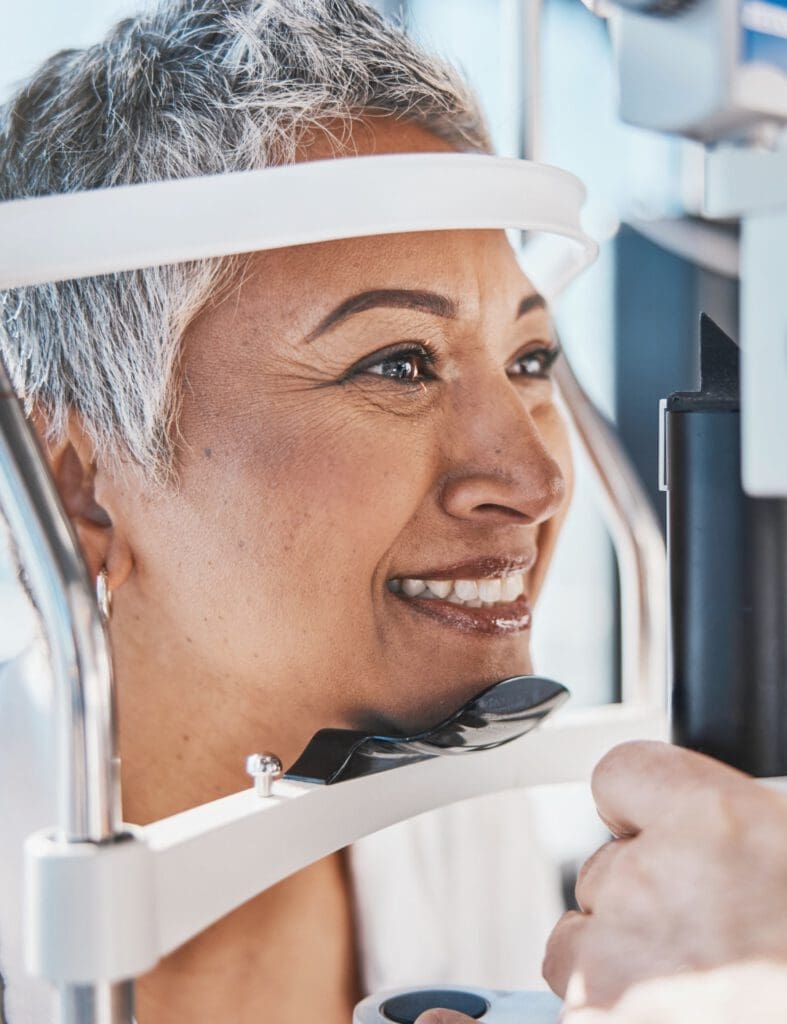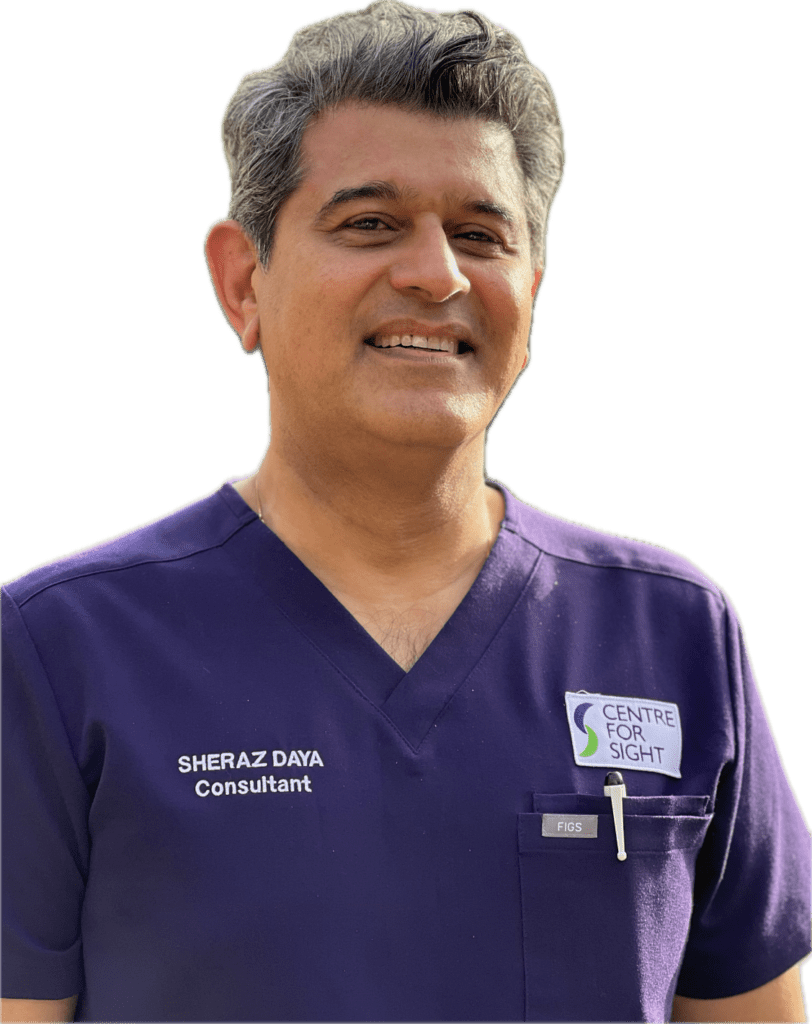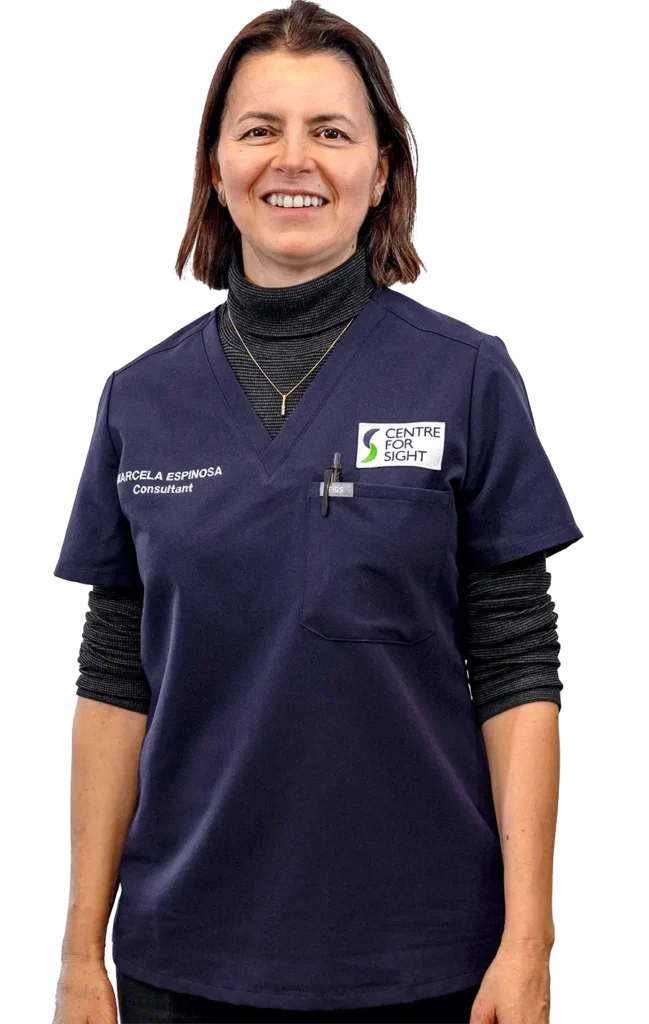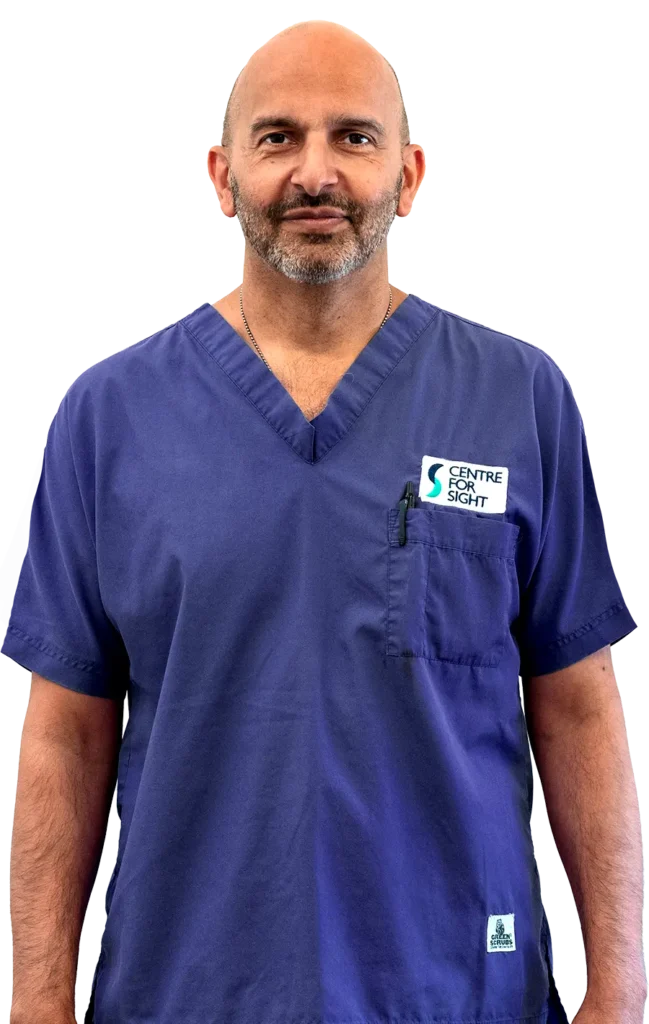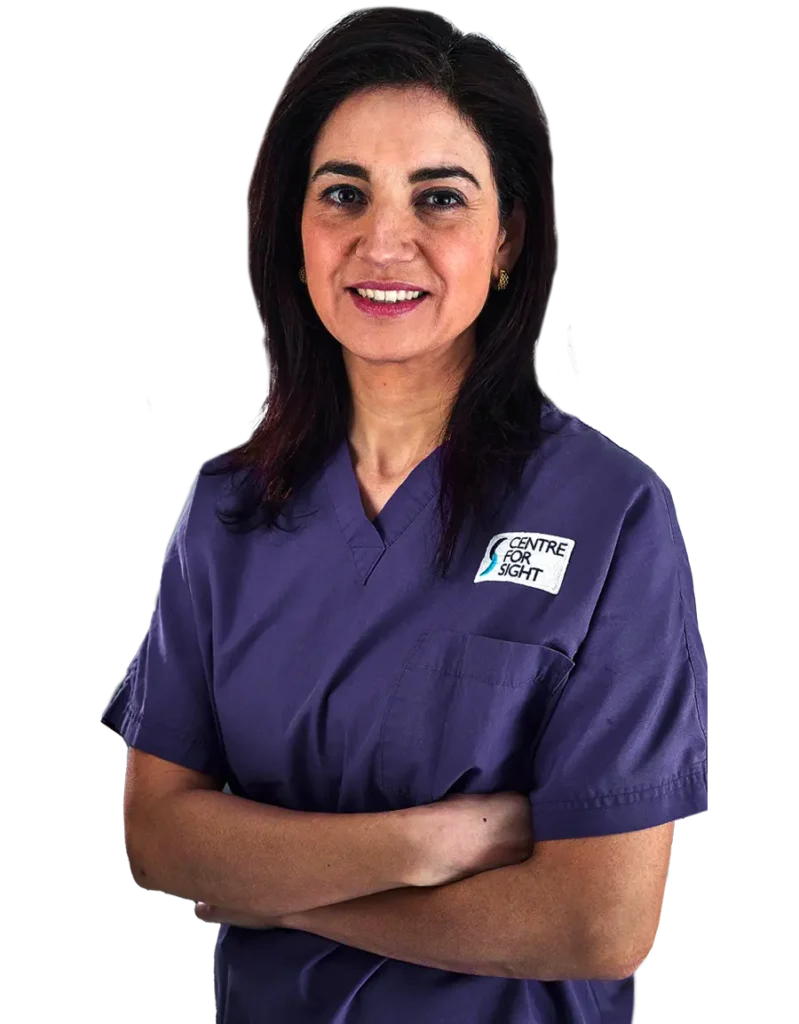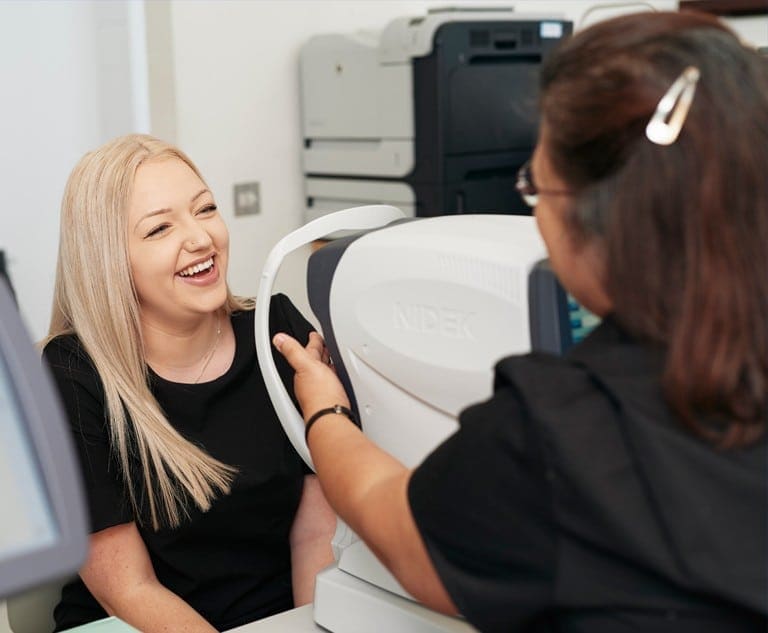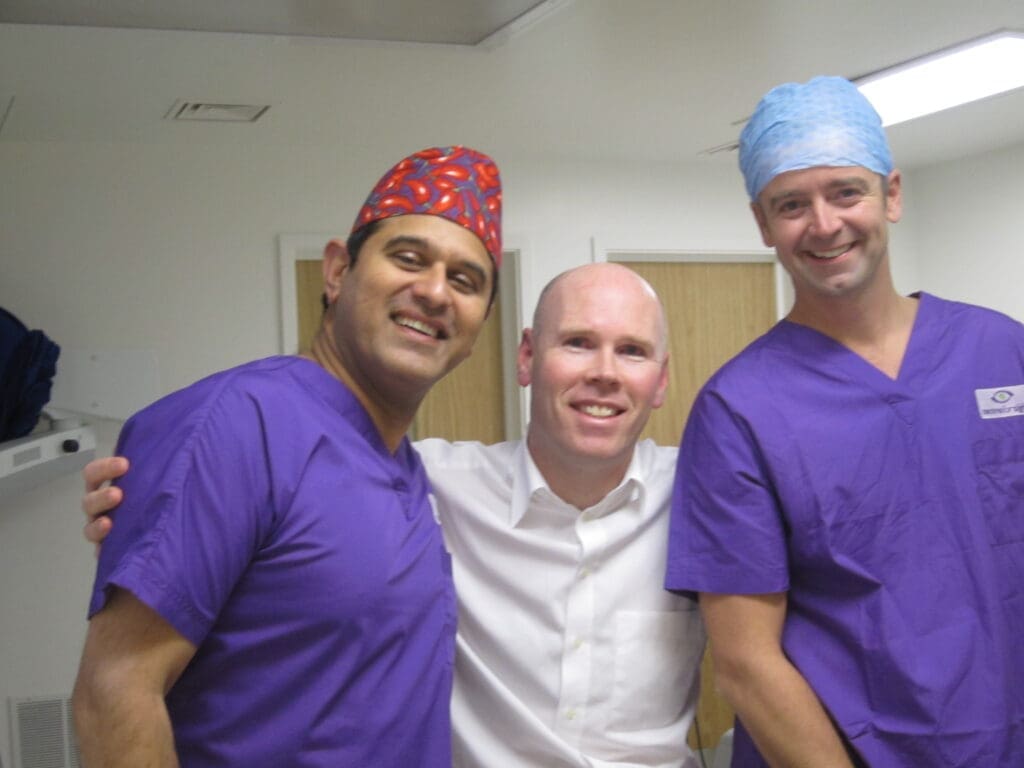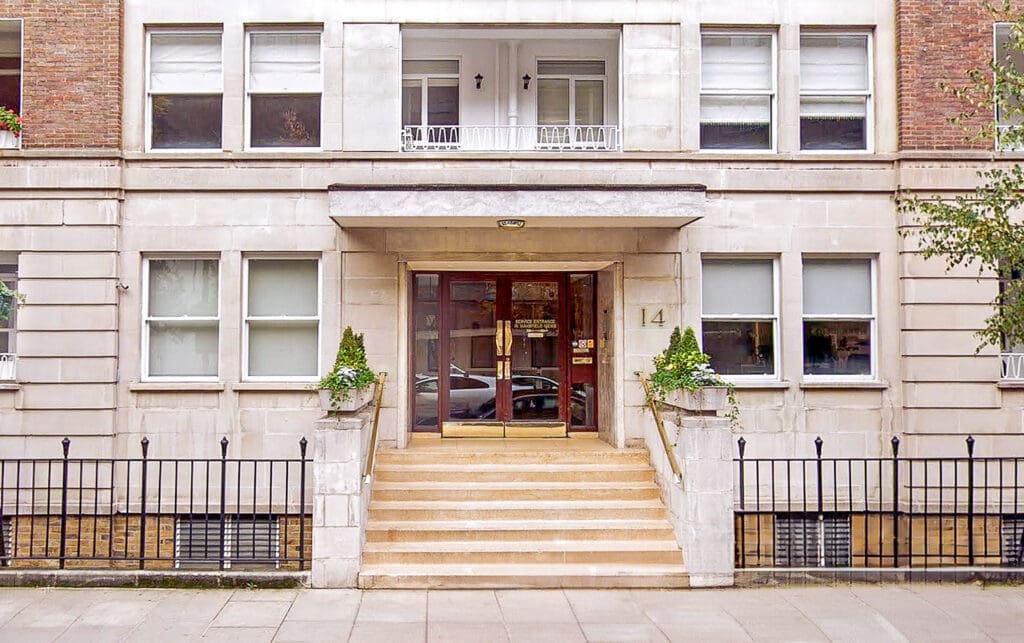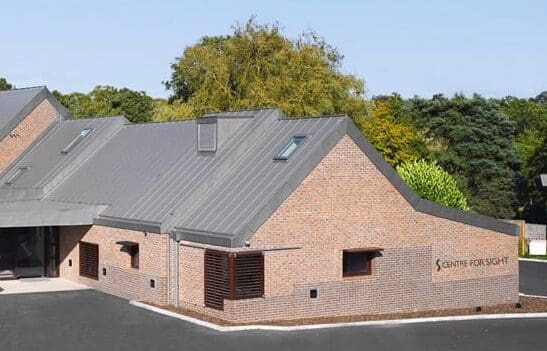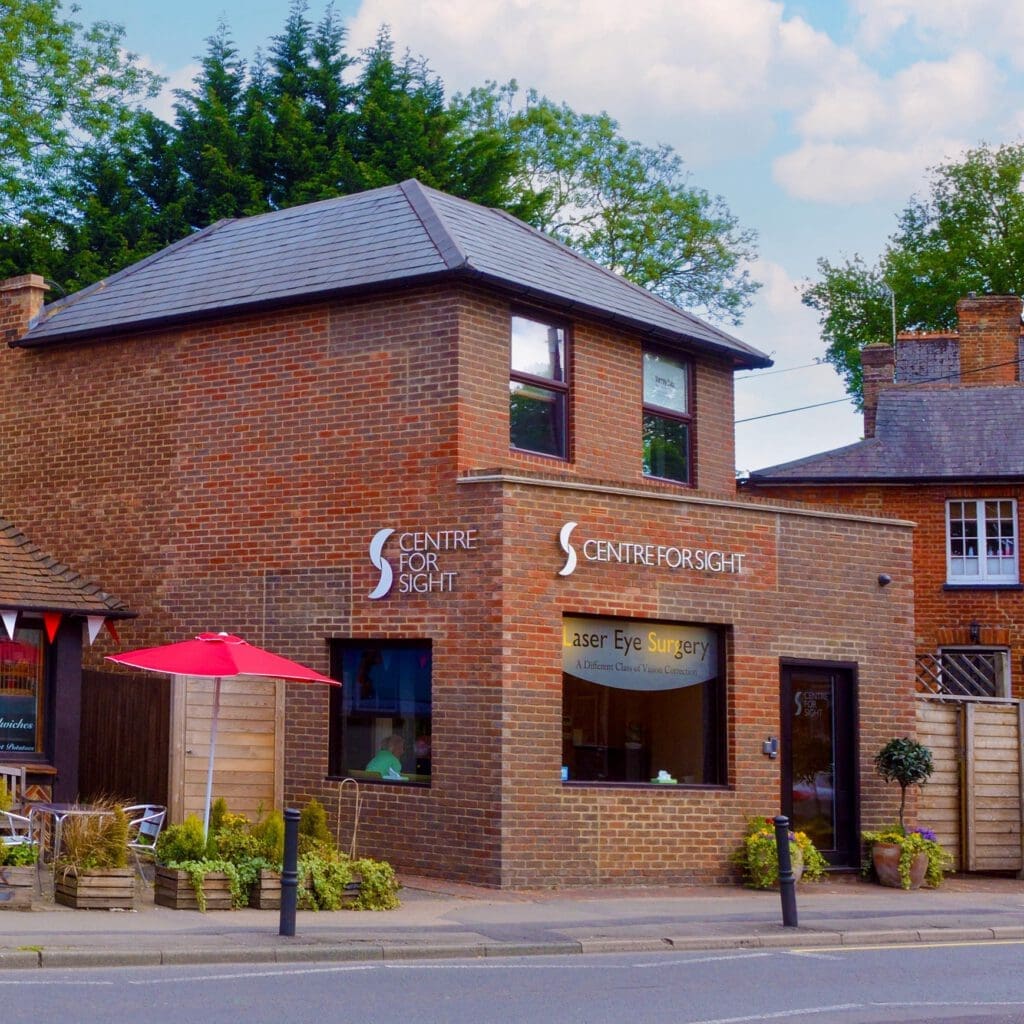Laser Cataract Surgery Vs. One-Stop Cataract
To address long NHS waiting lists, Centre for Sight launched a One-Stop Cataract Service. Our laser cataract surgery and one-stop cataract service both restore clear vision, but here’s a quick guide to help you understand each option.

What is Refractive Laser Cataract Surgery?
All procedures (except those under the One-Day Cataract Service) are performed using Lasers (Victus Femtosecond laser or CAPSULaser) – no compromise.
Also as a standard, extra measures are taken to optimise vision by performing “Refractive Laser Cataract Surgery.” The intention is to provide good unaided vision by making considerable efforts to accurately calculate lens power, correct astigmatism (using the laser or specially made lens implants) and where suitable use high performance trifocal lenses or multifocal lenses. The goal is to leave no refractive error – in other words no residual power which will require glasses for correction.
The use of a femtosecond laser in cataract surgery takes safety and precision of surgery to a completely new level. Victus Laser and CAPSULaser assists the surgeon in performing perfect, repeatable and reliable surgery. With this level of perfection, cataract surgery and Lens Replacement Surgery have become even safer and more reproducible. Combined with high performance intraocular lens implants, like trifocal lenses, those with cataracts can look forward to elimination of glasses altogether!*
What is One-Stop Cataract Surgery?
To address long NHS waiting lists and serve the community, Centre for Sight launched a One-Stop Cataract Service. This service allows patients to receive necessary scans, confirm a cataract diagnosis with a consultant, and undergo surgery all on the same day, at an affordable price.
The private cataract surgery offered at Centre for Sight matches or exceeds NHS standards, with consultants handling evaluations and procedures. The basic One-Day treatment includes a high-quality *monofocal lens, similar to those used in most NHS procedures. Additional refractive options like multi-focal lenses, toric lenses for astigmatism, or laser techniques are not included.
*The monofocal lens provides one point of focus, usually set for distance, so patients will need glasses for near (40cm) and possibly intermediate (60 to 80cm) activities.
Suitability for Cataract Surgery
Cataract surgery is recommended when a clouded lens significantly affects vision, causing it to fall below the DVLA standards for safe driving. This standard is used by the NHS and recognised by insurance companies for coverage. While early cataracts can impact vision quality, surgery at this stage is typically considered a Laser Lens Replacement rather than a medical necessity. Many people choose this procedure to enhance their vision and reduce or eliminate their dependence on glasses.
Ideal candidates for cataract surgery are in good health and able to lie flat for approximately 20 minutes.
This procedure is often selected by individuals seeking vision correction and wanting to reduce or completely eliminate their need for glasses.
